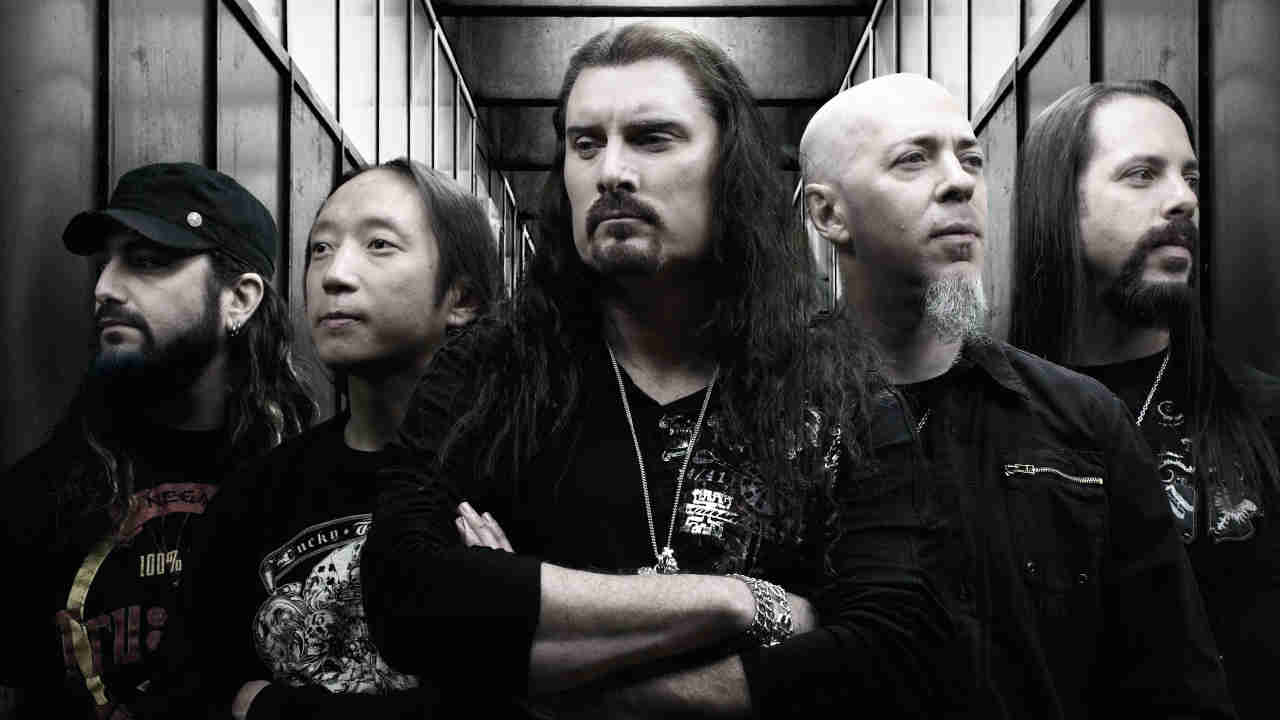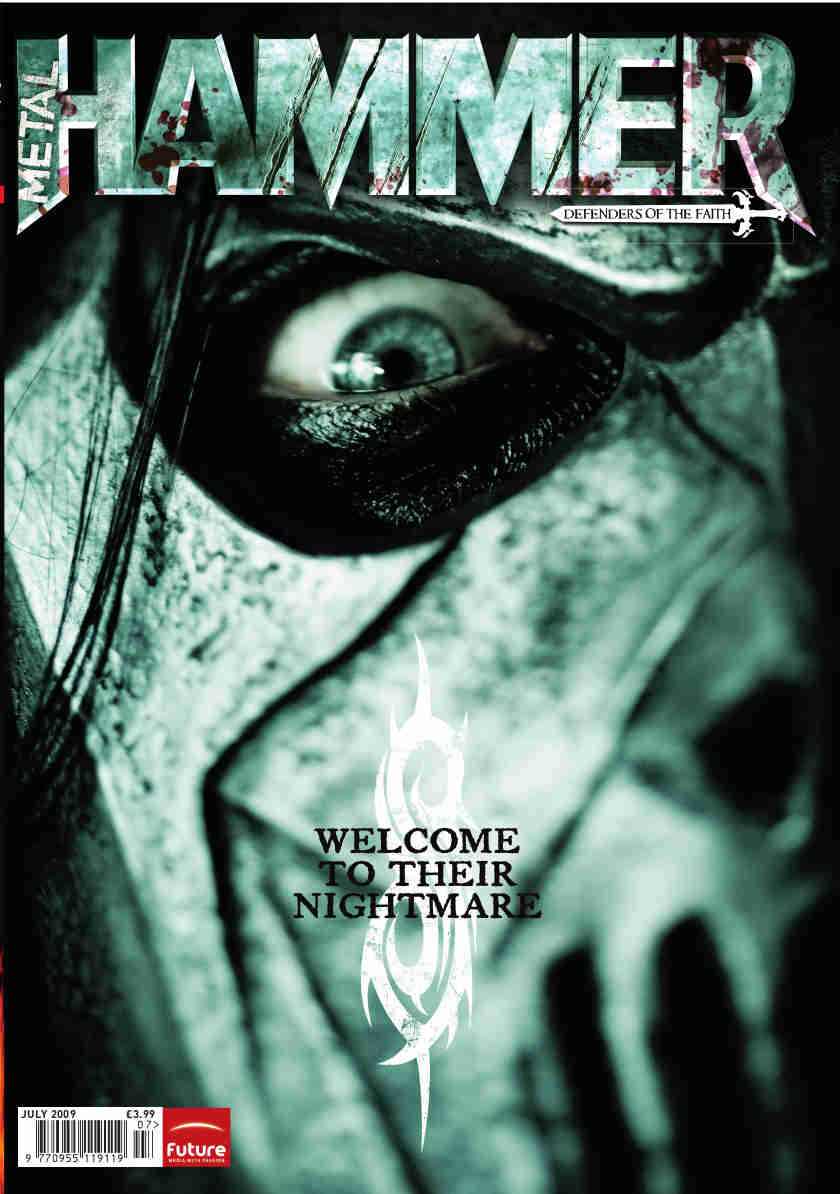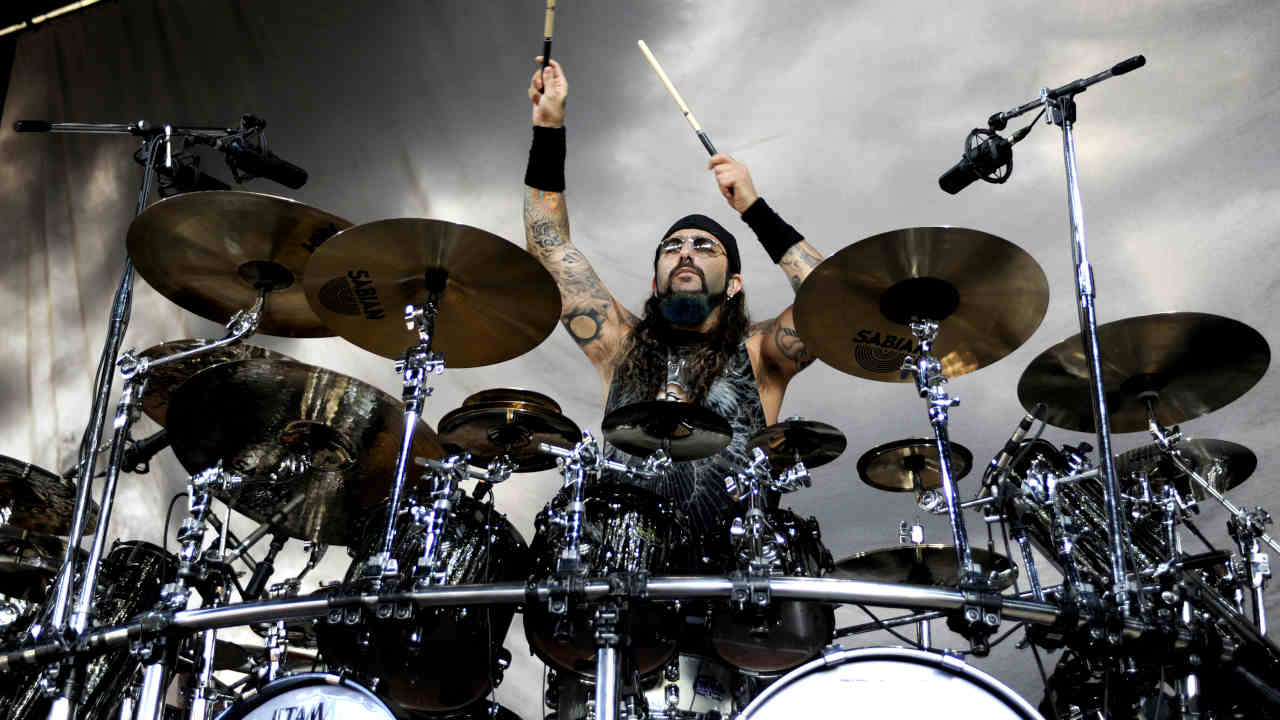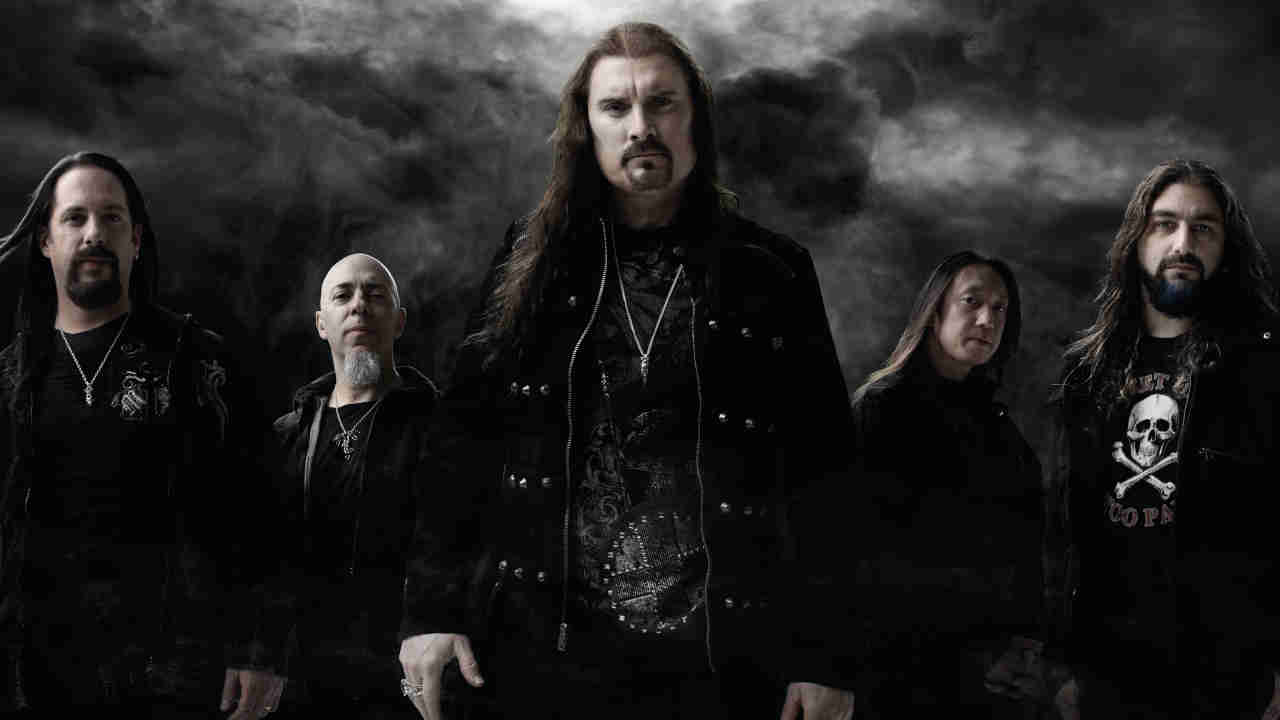Dream Theater did more than any band to turn prog metal into a viable commercial force. When Metal Hammer met up with them in 2009 to talk about their new album, Black Clouds & Silver Linings, they had stepped up to arena-headlining level and were ready to push things even further – even if that record would be the last one drummer Mike Portnoy recorded with the band for 16 years.

After a moment’s bafflement, an amused smile flickers onto Mike Portnoy’s lips. Dream Theater have featured in Metal Hammer often before, mostly in retrospective-themed articles, but the drummer has just learned that this interview is the first to promote a brand new album.
“It’s about fuckin’ time!” he roars into the recorder, playfully exclaiming: “What the fuck took you guys so long?”
Given that the album concerned, Black Clouds & Silver Linings, is the 10th of a career that next year reaches the quarter-century mark, he might have a point. But in stark contrast to the rest of the world, the UK as a whole has only just begun playing catch-up with Dream Theater.
From 1993 onwards, despite record company apathy and the vagaries of our fickle musical climate, Britain somehow managed to retain a place in Dream Theater’s tour itineraries. Though weaned upon the then still deeply unfashionable sounds of such 1970s prog rock acts as Yes, Genesis and King Crimson, the band also successfully wooed the live audiences of Iron Maiden and Megadeth. However, Dream Theater’s complex genetic breakdown only ever really muddied the waters of perception.
Finally able to headline for two nights at London’s Hammersmith Apollo, profile-wise the band – completed by vocalist James LaBrie, guitarist John Petrucci, bassist John Myung, keyboard wizard Jordan Rudess – continued to fly beneath the radar of mainstream acceptance.
It’s only since the likes of Opeth, Coheed And Cambria and The Mars Volta smashed down the prog-rock barriers, and having rid itself of a major label deal to sign with Roadrunner Records for 2007’s Systematic Chaos album, that Dream Theater could summon a discernable growth spurt. A spot at Download in 2007 marked the group’s first time on a British festival stage before, riding the crest of a wave, returning to headline the capital’s Wembley Arena four months later.
“Things have moved fast for us in the UK these last couple of years,” agrees Mike. “With the earliest gigs at the Marquee, then the Astoria and the Forum, it was a case of taking baby steps. It took us longer here than anywhere else in the world, but it’s been a fulfilling ride and I’d rather take a slow road and arrive eventually than a fast one and be gone within a year.”

After spending so long shackled to East West Records and various spin-off imprints that viewed them as some sort of inexplicably profitable white elephant, the band was happy to leave when the contract expired.
“We were counting down the days,” smiles Mike. “We made seven albums for East West in 15 years, and they opened a lot of doors for us at the start but it wore off real quick.”

That the band was forced into collaborating with Bon Jovi/Aerosmith hitmaker Desmond Child on the 1997 album Falling Into Infinity says everything of the levels of misunderstanding involved.
“That whole debacle was the final straw, it made us put our foot down and demand that things changed,” Mike sighs wearily. “To them, although we generated a lot of money, we were just a name on a roster. Nobody gave a shit about us and they certainly never understood us.”
Consequently, Dream Theater fully appreciates the value of Roadrunner’s care and attention.
“Could this be happening to us in the UK were we signed to any other label? That’s an interesting question,” muses Mike. “Creatively we do what we do with no outside interference, but Roadrunner’s promotion and marketing has helped us to reach some younger kids. They are hands-down the best metal label out there.
“We’ve toured with Deep Purple and Yes, and the same fans that followed those bands in their heydays still see them now, so their audiences have reached 50 and 60 years old,” he adds. “But here we are almost 25 years into our own career and we no longer exclusively play to the same fans that came to our shows in the 1990s. Our audience ranges from 12-year-olds to grey-haired prog-heads.”
This has plenty to do with Dream Theater’s triumphant spot on the Dimebag Darrell stage at Download 2007.
“After 21 years of waiting, to generate such a buzz in the UK was intense – no pun on the word ‘tent’ intended,” he grins, referring to the fact that their performance took place under canvas. “It was a bit of a cock-tease to finally play Download and not be on the main stage. But the fact that people would give up their spot to see [the day’s headliners] Iron Maiden was precious to us.”
The fact that Dream Theater could headline Wembley Arena and sell it out represented final irrefutable proof of the band’s arrival on these shores. “It felt like a moment of achievement,” volunteers Mike. “A real ‘fuck you’ to all the doubters that never got what we were about and said that we would only last for a couple of albums.”
Among the fundamental reasons for Dream Theater’s longevity is the group’s longstanding obsession with overkill – their concerts last for three hours and feature extended drum, guitar and keyboard solos, while their conceptual releases are dismissed as indulgent. Ironically, of course, the band are often mocked for the exact same reasons that their fans love them.
“We do what we do!” says Mike throwing his hands in the air. “We stick to our guns and demand that people change for us, not the other way around. And you know what? It’s starting to happen. Not so long ago the term ‘progressive’ was a dirty word, now it’s cool. The new Mastodon album [Crack The Skye] is a perfect example. Meshuggah, Tool and The Mars Volta are all helping the music scene in 2009 to evolve.”
Of course, these things always move in cycles and Mike owns up to being perturbed by the thought of the bubble bursting again in five years, leaving us with more long-faced bastards that cannot play their instruments.
“It worries the hell out of me,” he frowns. “We’ve been outcasts for our whole career. If what we do becomes some sort of trend, will we die with it? All I know for sure is that prog hasn’t been this big since the 1970s, which can only be a good thing.”

As unapologetically epic and heroically overblown as anything the band has attempted in the past, the new album, Black Clouds & Silver Linings, contains just six songs – four of which are more than 12 minutes long. There is also a three-disc Collector’s Edition Deluxe Boxed Set that unites six cover songs (one of which being a version of Iron Maiden’s To Tame A Land), another disc of instrumental versions and a DVD of variable ‘stem mixes’ that will allow the fans to finetune and remix the way the record sounds.
“We’re not mellowing with age, that’s for sure,” Mike smirks. “It’s an extreme album, in terms of its metallic content and overall breakdown.”
The drummer is quite right. In the rush to acclaim Dream Theater’s musicianship and sheer orgiastic love of going over the top, critics often overlook their punishing levels of intensity.
“This is a dark, heavy and contemporary-sounding album,” nods Mike. “It would stand its ground alongside any modern metal release – Slipknot, Trivium… whoever – but writing-wise the old Dream Theater mentality still shines through.”
The previous album’s introduction of growled vocals, courtesy of Mike himself, is something that has caused heated debate.
“It did alienate some of our more traditional fans, but it’s only one side of the puzzle,” he points out. “James [LaBrie] is absolutely the right singer for the band, but when we hired him [in 1991] the operatic style of a Geoff Tate [Queensrÿche] or Steve Perry [ex-Journey] was very much in demand. In the here and now, for us to be viewed as a contemporary metal band, the vocals need to embrace that side of the music.”
Any potted history of Dream Theater reminds us that James was given a ‘shape up or ship out’ ultimatum before 2002’s Six Degrees Of Inner Turbulence album.
“James has improved his weaker points, whether it’s the way he sings or acts onstage,” insists Mike. “He’s more concerned about those things than anyone else, but he has a great range and we certainly don’t want to abandon the quality of his voice because it’s become a strong trademark of ours.”
Another fascinating element of the group’s last few releases, from Six Degrees Of Inner Turbulence onwards, is a collection of soul-bearing songs composed by Mike about his former addiction to alcohol that will someday be performed as a whole. Known as the Twelve-Step Suite, it ends with the new record’s The Shattered Fortress.
“I don’t think anyone else has done a concept piece that sprawls over five albums and seven years, and I’m glad I did it,” enthuses Mike. “But I didn’t fully anticipate the amount of work it would entail. Submitting The Shattered Fortress to the band felt a bit like handing in a homework assignment to a teacher.”
There is no trace of boastfulness when Mike casually states: “We are the biggest band of this whole [progressive-metal] genre”. With minimum sales of half a million copies for each of the group’s albums, it is an inarguable fact. Inevitably, Dream Theater ended up overtaking certain bands that had predated and inspired them. In the case of Queensrÿche, this didn’t go down too well. Back in 2006 when that band’s Geoff Tate voiced the opinion that, “We’re about writing songs and Dream Theater are about playing a lot of notes”, Mike uncharacteristically lost his rag, batting back with, “That’s because they can’t play as many notes as us. And it’s ironic to hear that from Geoff, who hasn’t written a good song in 10 years.”
Finally, with Queensrÿche set to make an appearance in their home state of Washington in August as one-off special guests on the North American leg of Dream Theater’s Progressive Nation package tour (joining Zappa Plays Zappa, Pain Of Salvation and Beardfish), the feud seems set to end.
“Geoff and I are very different personalities and we’ve seen each other a couple of times since our war of words,” reveals Mike. “We’re not best friends, but we’ve been cordial to each other.”
Here in Europe, the Progressive Nation bill is set to be completed by Opeth, Bigelf and Unexpect. Continental dates for September and October 2009 have already been announced and Mike insists that the UK will not be left out.
The touring marriage of Dream Theater and Opeth only picks at the scab of a long-threatened and distinctly mouth-watering collaboration between Mike, Opeth’s Mikael Åkerfeldt and Steven Wilson of Porcupine Tree. The drummer raises his eyes skywards when reminded of this fact.
“Stupidly, one of us mentioned it years ago and it now crops up in every interview. Just tell Mikael and Steven that I’m game,” he sums up. “If those guys can organise their schedules, I’m ready to rock.”
Messrs Åkerfeldt and Wilson: the ball is now officially in your court.
Originally published in Metal Hammer issue 193, June 2009

![Dream Theater - A Rite Of Passage [OFFICIAL VIDEO] - YouTube](https://img.youtube.com/vi/gX6jirCykI0/maxresdefault.jpg)
